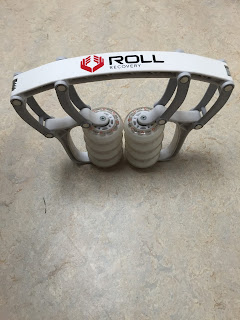 Ed Caesar’s Two Hours: The
Quest to Run the Impossible Marathon stands part science, part athletic
admiration, part Kenyan exploration. Unlike most running texts that can either
get caught up in the spectacle and admiration of the sport or bogged down in
the science of it, Caesar attempts to tell a story of a rather complex and
challenging event: the marathon. He digs into the history, the once significant
yet pedestrian races of yesteryear that established the event and the slow rise
of the race throughout the twentieth century to both social and professional prominence.
At the same time, he takes a dip into the science, discusses the limiting
factors, and delves into briefly into the impossible—the two hour marathon,
something that is run at a speed most humans cannot hold for one mile, much
less twenty-six plus.
Ed Caesar’s Two Hours: The
Quest to Run the Impossible Marathon stands part science, part athletic
admiration, part Kenyan exploration. Unlike most running texts that can either
get caught up in the spectacle and admiration of the sport or bogged down in
the science of it, Caesar attempts to tell a story of a rather complex and
challenging event: the marathon. He digs into the history, the once significant
yet pedestrian races of yesteryear that established the event and the slow rise
of the race throughout the twentieth century to both social and professional prominence.
At the same time, he takes a dip into the science, discusses the limiting
factors, and delves into briefly into the impossible—the two hour marathon,
something that is run at a speed most humans cannot hold for one mile, much
less twenty-six plus.
Caesar also follows professional Geoffrey Mutai, using the
man as an archetype for the marathon experience. Mutai’s story is the vehicle
Caesar drives through his narrative. With a tough upbringing, Kenyan heritage
from Kikuyu country, the will to get out, and the will to succeed Mutai stands
as a perfect example of one who could achieve such a lofty marathon goal.
Caesar details Mutai’s past, his course records in Boston and New York, and his
world record attempt in London. At the same time, like in Running
with the Kenyans, Caesar lives in Kenya for a time, exploring the training,
the lifestyle, and other members of the country’s running elite. In doing so,
we are treated to an expose on the marathon, a unique and entertaining journey
through a sport and event so many tackle but so few truly understand.
Favorite Lines:
- “Nobody finds the marathon easy—even professionals, especially professionals. The distance is democratic in that way. Everyone who runs a marathon is running against his or her limits. Everyone is forced to manage a certain amount of pain and to recruit hidden reserves. Whatever one’s talent or preparation, nobody runs an easy marathon. Geoffrey Mutai’s prayer at the startline is not to win the race, but to finish it.”



